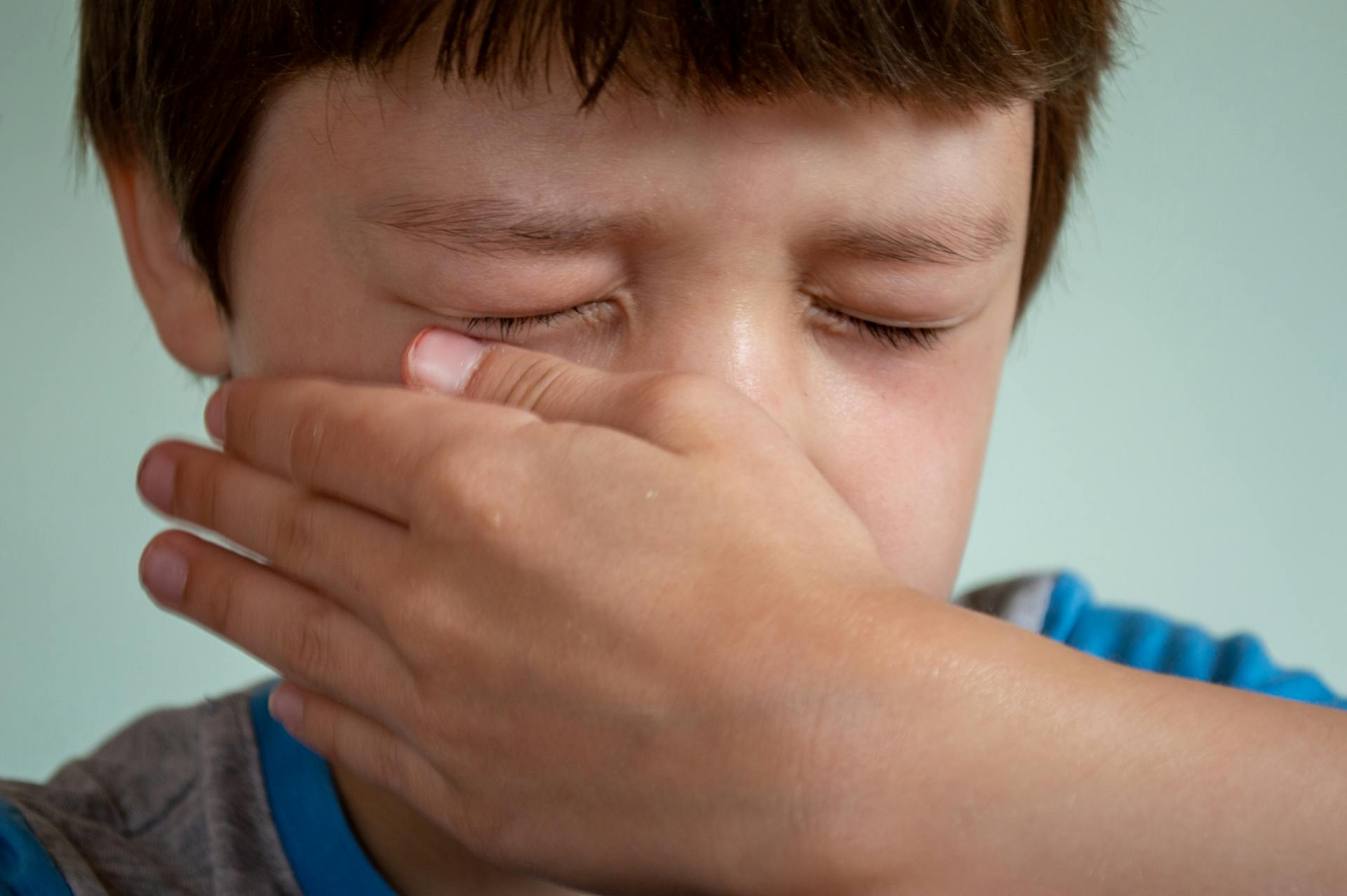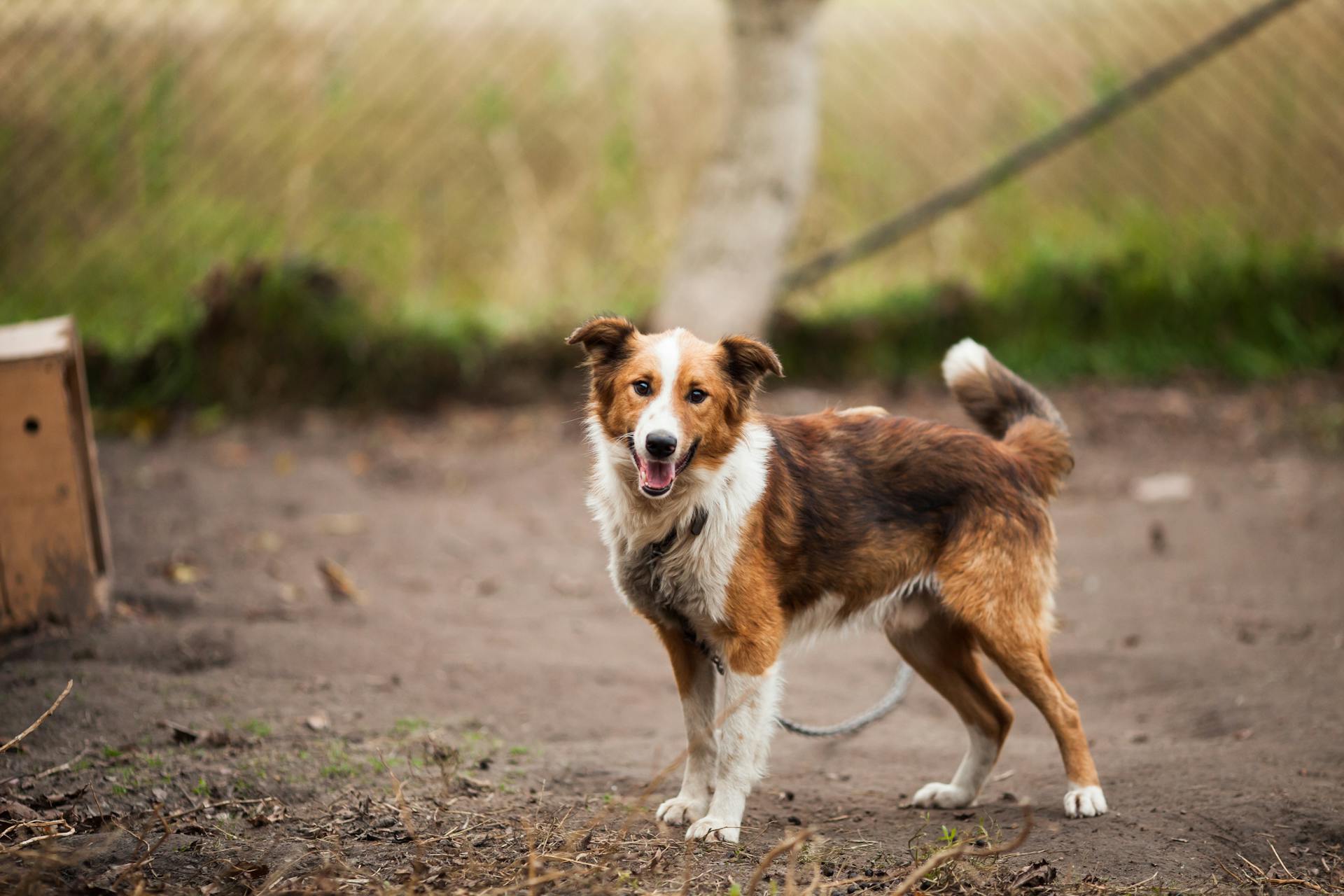
If your dog had rat poison block in mouth, it's essential to act quickly and carefully.
Remain calm and try to stay focused on the situation.
Rat poison blocks are highly toxic and can cause severe harm to your dog if ingested.
Your dog may start showing symptoms within 30 minutes to 12 hours after ingesting the poison, depending on the amount and type of poison.
Seek immediate veterinary attention, even if your dog seems fine.
Dog Poisoning: What to Do
If your dog has ingested rat poison, it's essential to act quickly. If less than two hours have passed since ingestion, see a vet as soon as possible to induce vomiting.
Don't panic – anticoagulant poisons have an effective antidote if started within two days. Your vet can guide you on the necessary steps to take.
Your vet will recommend blood testing two days after ingestion to check for slow blood clotting. This is crucial in determining the effectiveness of the treatment.

To counteract the effects of the poison, a course of Vitamin K1, the specific antidote, should be started. The duration of the treatment should be longer than the action of the poison itself.
Here's a summary of the steps to take:
- Plan a blood test to check for slow blood clotting two days after ingestion.
- Start a course of Vitamin K1 for a time calculated to be longer than the action of the poison.
Symptoms and Effects
Symptoms of rat poison ingestion in dogs can take 1-7 days to show after exposure, and may include lethargy, pale gums, trouble breathing, weakness, and decreased appetite.
If you notice any foreign material in your dog's stool, such as dyes from rodenticides, contact your veterinarian immediately.
Clinical signs of internal bleeding due to anticoagulant rodenticides can include pale gums, trouble breathing, and weakness, while signs of cholecalciferol rodenticides can include weakness, anorexia, and increased thirst and urination.
Here are some common symptoms of rat poison ingestion in dogs, grouped by type of rodenticide:
- Anticoagulant rodenticides: lethargy, pale gums, trouble breathing, weakness, decreased appetite, and internal bleeding
- Cholecalciferol rodenticides: weakness, anorexia, increased thirst and urination
- Bromethalin rodenticides: lack of coordination, stumbling, tremors, seizures, and paralysis
- Zinc and aluminum phosphides: lethargy, vomiting, diarrhea, lack of coordination, tremors, seizures, trouble breathing, and stomach bloating
Symptoms
Symptoms of rat poisoning in dogs can be quite varied and may take some time to show up. Clinical signs often take 1-7 days to appear after ingestion of a toxic dose.
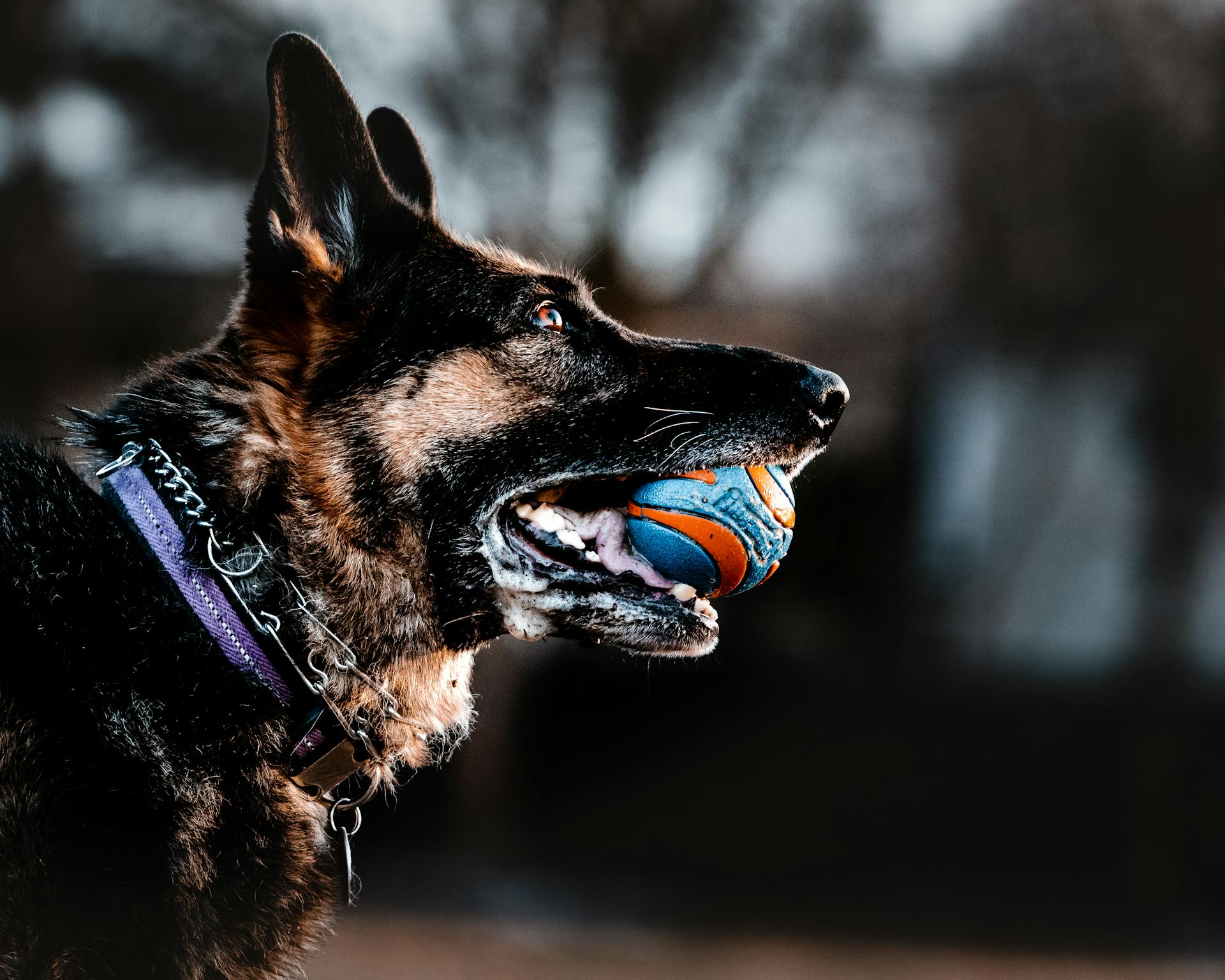
Lethargy is a common symptom of rat poisoning in dogs, as well as trouble breathing and increased breathing rate. Pale gums are another sign that your dog may be experiencing internal bleeding.
If you notice any foreign material in your dog's stool, such as dyes from the rat poison, contact your veterinarian immediately. Bloody diarrhea, nose bleeds, and bruising are also possible symptoms.
Weakness and collapse are other signs that your dog may be experiencing internal bleeding. Decreased appetite and less common signs like vaginal bleeding (if pregnant) and pharyngeal swelling can also occur.
Increased thirst and urination may be a sign of acute kidney failure in dogs poisoned with cholecalciferol rodenticides. Anorexia and vomiting are also possible symptoms.
Tremors and seizures can occur in dogs poisoned with bromethalin rodenticides, as well as lack of coordination and stumbling. Paralysis is also a possible symptom.
The toxic phosphine gas produced by zinc and aluminum phosphides can cause severe symptoms, including vomiting and diarrhea that may be bloody. Lethargy, lack of coordination, and tremors are also possible symptoms.
Explore further: Dog Poison Symptoms
What Poison Does to Dogs
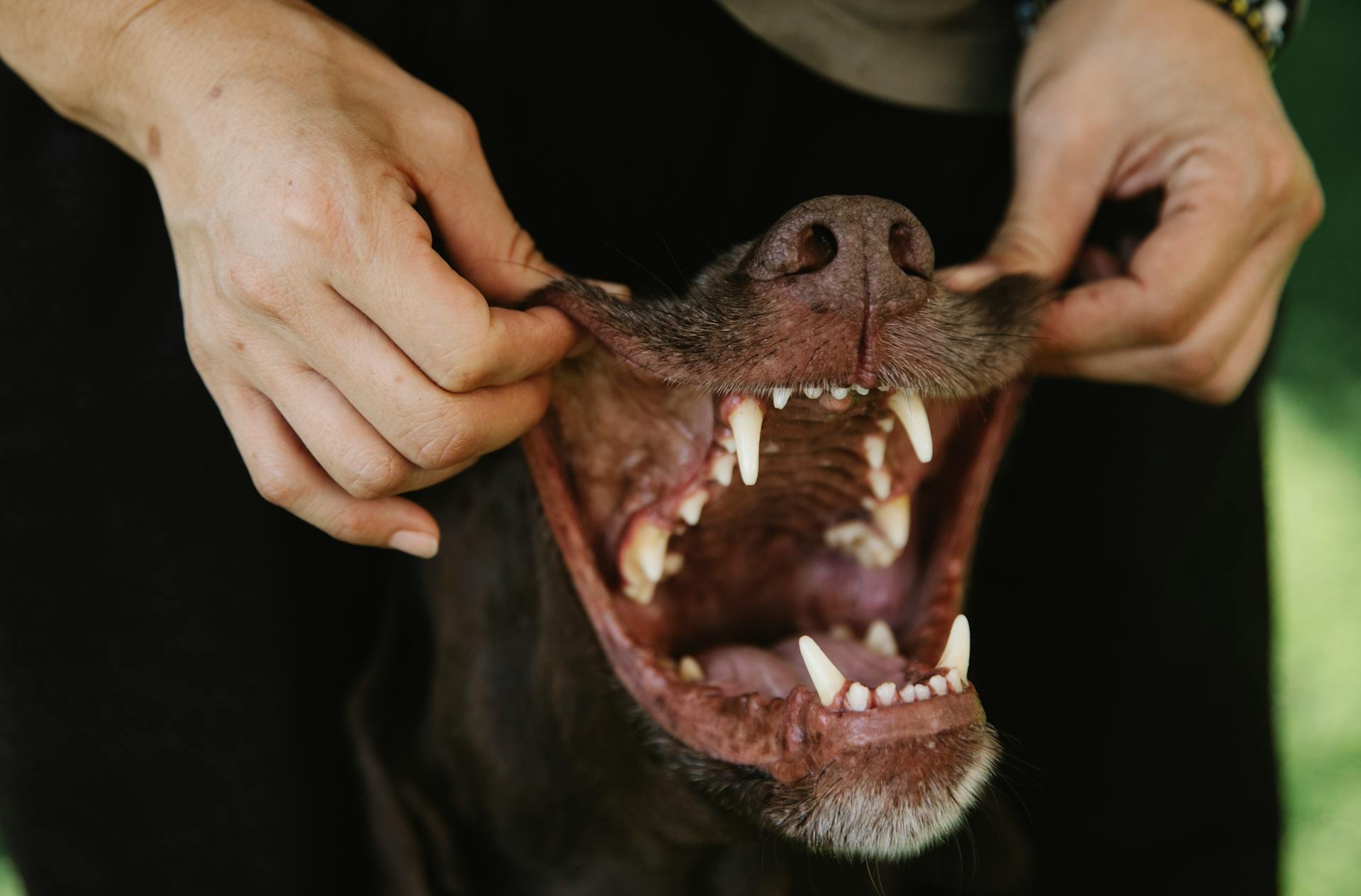
Rat poison can have devastating effects on dogs, and it's essential to know the symptoms and effects to act quickly and get your furry friend the help they need.
The type of rat poison can determine the severity and type of symptoms your dog will experience. Anticoagulant rodenticides, for example, prevent blood from clotting, leading to internal bleeding.
Clinical signs of anticoagulant rodenticides can include lethargy, pale gums, trouble breathing, weakness, and decreased appetite. These symptoms can take 1-7 days to show after ingestion of a toxic dose.
Some rat poisons, like bromethalin, can cause rapid signs of tremors, seizures, hind limb weakness, and collapse due to their neurotoxic effects.
The active ingredient in the rat poison is what matters most, not the form it comes in. So, even if the poison is in block or pellet form, it's the chemical inside that can harm your dog.
Symptoms of rat poisoning can vary depending on the active ingredient and the amount ingested. Here are some common symptoms to look out for:
- Lethargy
- Pale gums
- Trouble breathing/increased breathing rate
- Weakness/collapse
- Decreased appetite
- Bloody diarrhea, nose bleeds, bruising, bloody urine, swollen joints, bleeding from gums, vaginal bleeding (if pregnant), pharyngeal swelling, and even seizures (from bleeding in the brain)
- Weakness, anorexia/vomiting, increased thirst and urination (which may be a sign of acute kidney failure)
- Lack of coordination/stumbling, tremors/seizures, paralysis
- Lethargy, vomiting (may be bloody), diarrhea (may be bloody), lack of coordination/weakness, tremor/seizures, trouble breathing, stomach bloating/abdominal pain
If you suspect your dog has ingested rat poison, don't waste time trying to treat them yourself. Seek veterinary attention immediately.
Causes and Prevention
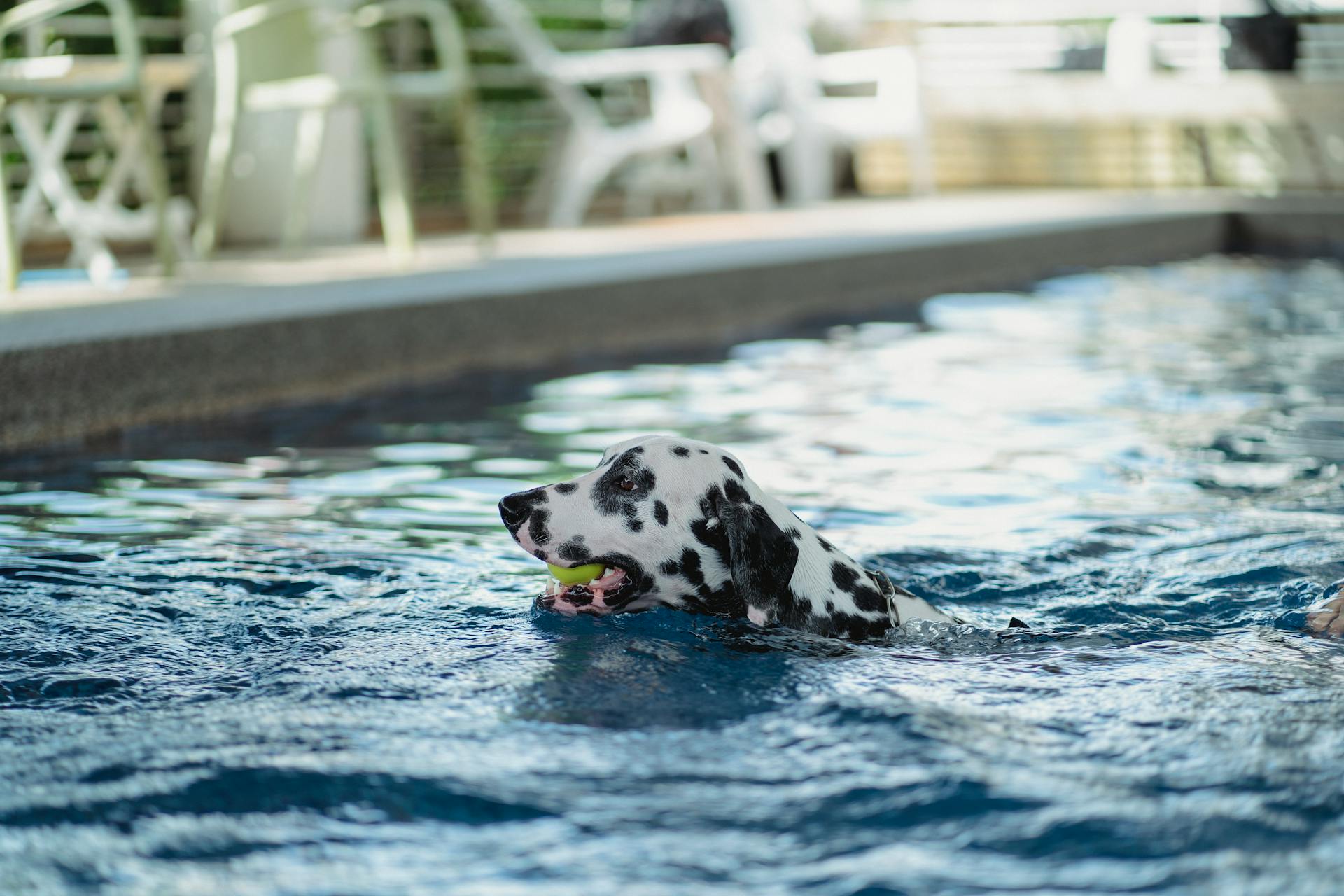
Most rat poison cases in dogs are the result of unintentional ingestion of bait. In rare cases, poisoning may be due to malicious intent.
Prevention is key, and keeping all rat poisons away from your dog and in a secure place is crucial. Consider an alternative form of pest control, such as live traps that do not include poisons.
If you must put out rat poison, make sure to keep a detailed record of how much was placed, know what kind of product (including the active ingredient), and take a picture of the ingredients in case you need to refer to it later for veterinarian treatment. Mark where you dispensed the rat poison and ask friends, family members, or sitters if they have rat poison out and keep the dog away from those areas.
Never let dogs eat unidentified objects on walks, as these can include toxins and poisons and be hard to determine after the fact.
Discover more: Why Does My Dog Keep Opening and Closing His Mouth?
Causes

Most rat poison cases in dogs are the result of unintentional ingestion of bait.
Poisoning in dogs can occur when they eat rat poison bait left behind by a friend or family member, so it's essential to ask about potential poisons around the home when visiting.
In rare cases, poisoning may be due to malicious intent.
Ask your dog's sitter about any rat poison bait in the home to minimize the risk of poisoning.
Readers also liked: Dog Mouth Bleeding When Chewing Bone
Prevention
Prevention is the best course of action when it comes to keeping your dog safe from rat poisoning. Keep all rat poisons away from your dog and in a secure place.
Consider using live traps instead of rat poison, as they are a safer alternative. Keep a detailed record of how much rat poison you use, including the type of product and its active ingredient.
Take a picture of the ingredients in case you need to refer to it later for veterinarian treatment. Mark the location where you dispensed the rat poison, so you can easily find it if needed.
If your dog is going to visit a friend, family member, or sitter, ask if they have rat poison out and keep your dog away from those areas.
Monitor your pet's stool carefully, as many rodenticides contain dyes that may be noticeable before severe symptoms begin.
Diagnosis and Treatment
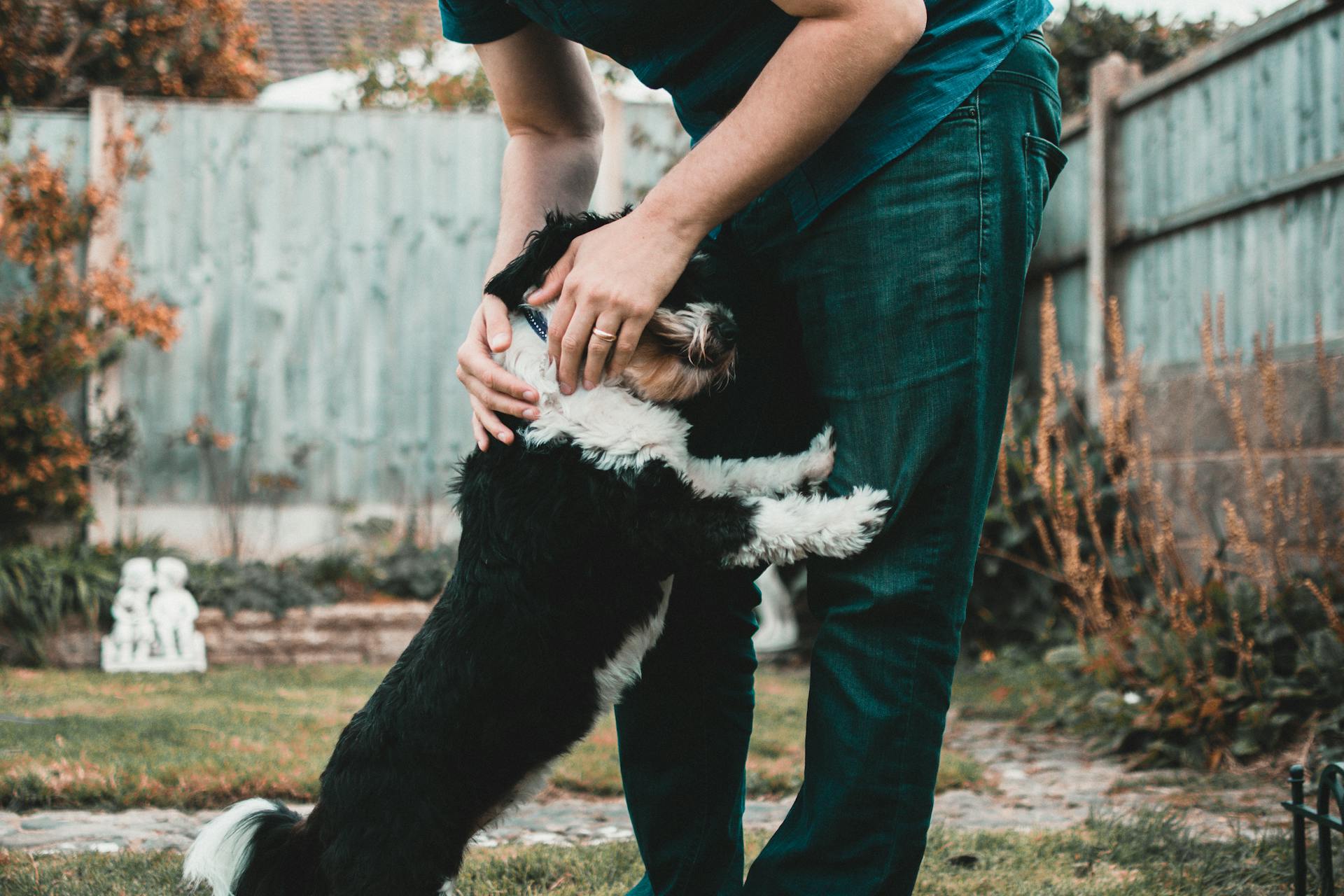
Dogs should be treated as soon as possible for rat poisoning, so it's essential to get your furry friend to the vet right away.
The vet will likely induce vomiting, but this may need to be done in a well-ventilated area if the active ingredient includes zinc and aluminum phosphides.
Treatment will depend on the specific active ingredient ingested, so it's crucial to determine the type of rat poison.
Here are some possible treatment options:
- For anticoagulant rodenticide, treatment will include at least 4 weeks of oral vitamin K, hospitalization for IV fluids, plasma and/or blood transfusions, and additional supportive care.
- For cholecalciferol or bromethalin poisoning, hospitalization is likely with IV treatment, and dogs may also receive medication to reduce calcium levels or decrease brain swelling.
- Poisoning by zinc and aluminum phosphide rodenticides may require antacids, liver protectant medicine, and medications to treat tremors or seizures.
How Veterinarians Diagnose
If you suspect your dog has ingested rat poison, take them to a local veterinary emergency hospital immediately. The sooner you get your dog to a vet, the better.
The vet will collect a thorough medical history to help with the assessment. Bringing the bait packaging is crucial, as it helps determine the active ingredient.
Calling the pet poison hotlines can also be beneficial, as they can look up packaging information on the product. Time is of the essence, so call the hotline while en route to the emergency veterinary hospital if possible.
Depending on the active ingredient, coagulation panels (PT/PTT) may be recommended to check your dog's ability to clot.
Treatment of

Treatment of rat poisoning in dogs requires prompt action to prevent serious health complications. The type of rat poison ingested determines the course of treatment.
If your dog has ingested rat poison, it's crucial to get them to the vet as soon as possible. Inducing vomiting may be necessary to remove the toxin from their system, but be cautious if the poison contains zinc and aluminum phosphides, as this can release deadly phosphine gas.
The vet will likely induce vomiting in a well-ventilated area in these cases. Activated charcoal may also be given to treat other toxins.
Treatment will depend on the specific type of rat poison ingested. Here's a breakdown of the treatment options:
- For anticoagulant rodenticide, treatment includes at least 4 weeks of oral vitamin K, hospitalization for IV fluids, plasma, and/or blood transfusions, and additional supportive care.
- There is no antidote for cholecalciferol or bromethalin poisoning, so hospitalization and IV treatment are necessary. Dogs with cholecalciferol poisoning will also need treatment to reduce calcium levels.
- Zinc and aluminum phosphide poisoning requires antacids and similar medications to decrease the production and effects of phosphine gas. Liver protectant medicine and medications to treat tremors or seizures may also be needed.
Recovery and Management
Prompt treatment is crucial in treating rat poisoning in dogs, and the prognosis is very good for dogs who receive it quickly.
Most dogs will remain hospitalized for observation and treatment for 2-6 days, depending on the active ingredient and how much rat poison was ingested.
Blood tests will be performed several times during this time.
If this caught your attention, see: Dog Rat Poison Treatment
Types of Poisons
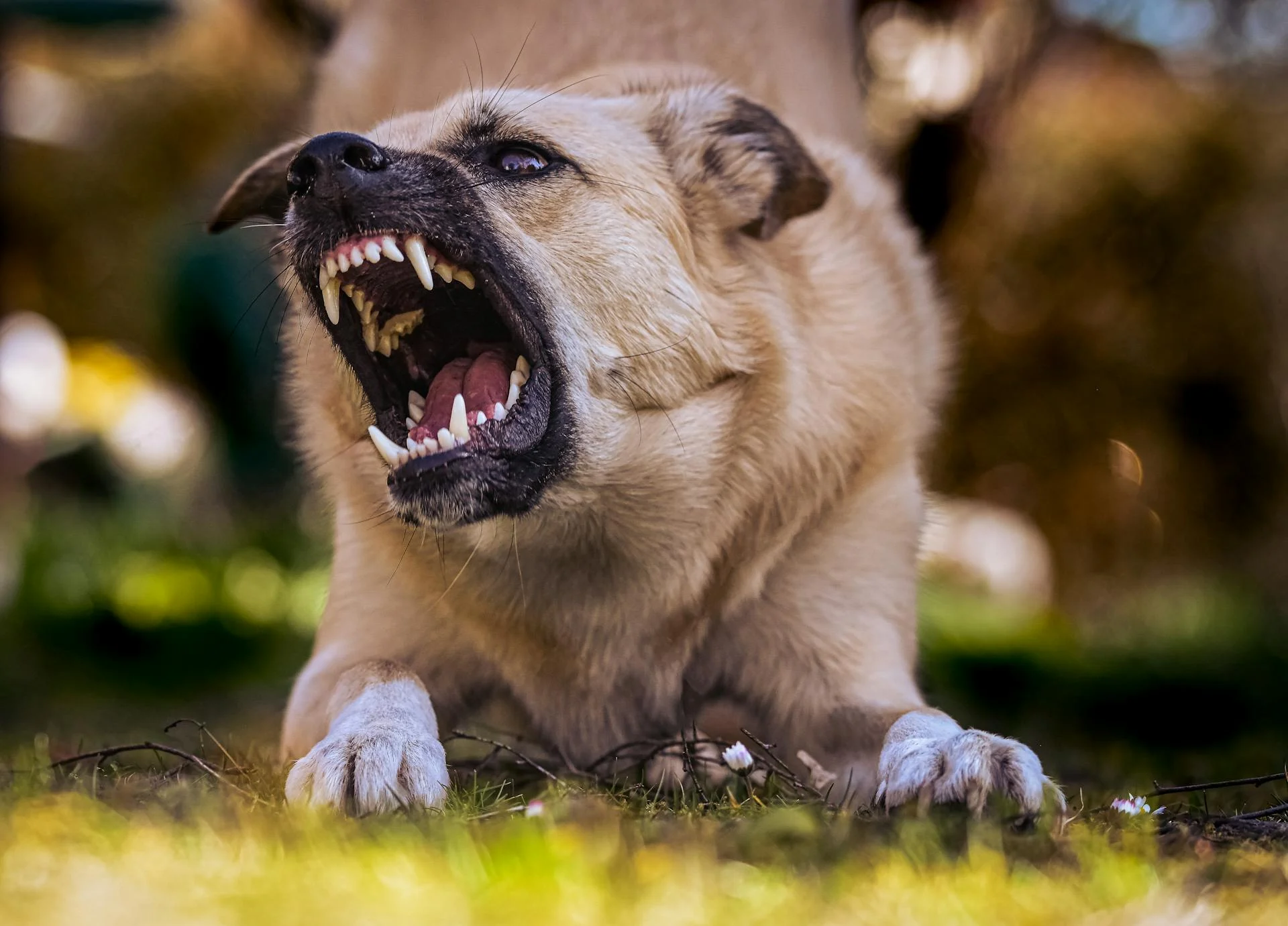
There are several types of rat poisons that can be toxic to dogs. Anticoagulants are the most common type used in Australia, and they work by blocking the production of clotting factors, causing internal bleeding.
These anticoagulants come in two types: warfarin, which is an older form that requires repeated and higher doses, and brodifacoum or difenacoum, which are more potent and can be deadly.
Bromethalin, on the other hand, is a neurotoxin found in rat baits in other countries, and it can cause rapid signs of tremors, seizures, and collapse.
If your dog eats a rat that has been poisoned with rodenticide, it could suffer from secondary rat poisoning, which is a serious condition that requires veterinary attention.
Here are some key differences between these types of poisons:
It's essential to know which type of poison was used if your dog has ingested a rat that has been poisoned, as this information can help your veterinarian provide the best possible treatment.
Dog Health Issues
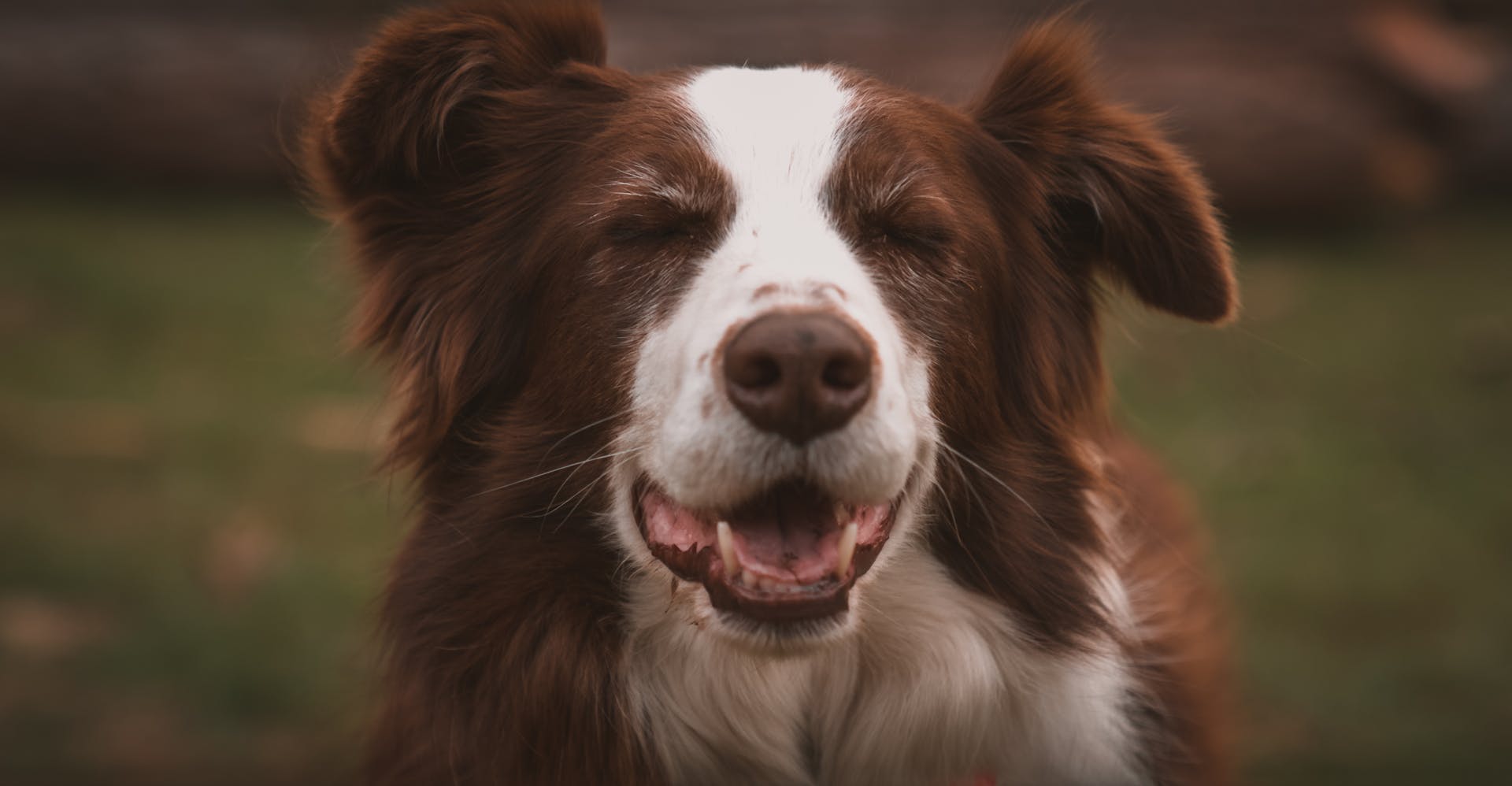
If your dog has ingested rat poison, it's crucial to act fast. If less than two hours have passed since ingestion, see a vet as soon as possible to cause vomiting.
The good news is that anticoagulant poisons have an effective antidote if started within two days. This means even if you're worried, you can still get your dog the help they need.
Your vet will advise on blood testing and when to stop treatment. It's essential to follow their guidance to ensure your dog receives the best care.
After ingestion, a blood test is planned to check for slow blood clotting two days later. This is a crucial step in determining the best course of treatment.
A course of Vitamin K1, the specific antidote, is started for a time calculated to be longer than the action of the poison. This helps counteract the effects of the rat poison.
Recovery and management of rat poisoning in dogs require prompt treatment and hospitalization for observation and treatment. Most dogs will remain hospitalized for 2-6 days, depending on the active ingredient and amount ingested.
Here's a rough guide to what you can expect:
Overall, the prognosis is very good for dogs who receive prompt treatment upon ingesting a rodenticide.
Rat Poison and Safety

If your dog has ingested rat poison, it's essential to act quickly. Don't waste time trying to treat your dog yourself, as this could do more harm than good.
Anticoagulant rodenticides, the most common type of rat poison in the UK, prevent blood from clotting, leading to internal bleeding.
If your dog has eaten rat or mouse poison, you should see a vet as soon as possible if less than two hours have passed since ingestion. The vet can induce vomiting to help remove the poison from your dog's system.
Anticoagulant poisons have an effective antidote if started within two days. Your vet will advise you on blood testing and when to stop treatment.
To help your dog recover, your vet may recommend a blood test to check for slow blood clotting two days after ingestion. They may also start a course of Vitamin K1, the specific antidote for anticoagulant poisoning, for a time calculated to be longer than the action of the poison.
Sources
- https://www.petmd.com/dog/poisoning/rat-poisoning-dogs
- https://www.vets-now.com/pet-care-advice/dog-ate-rat-poison/
- https://www.walkervillevet.com.au/blog/dog-ate-rat-poison/
- https://animalpoisons.com.au/news/rat-poison-and-dogs
- https://www.petpoisonhelpline.com/pet-safety-tips/mouse-and-rat-poison-rodenticides-poisonous-to-dogs-cats/
Featured Images: pexels.com
